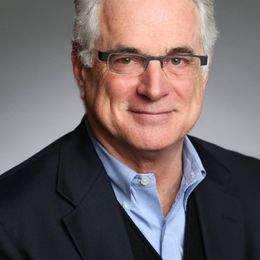Make Your Retirement a Time to Give Back
Experimentation and introspection can help you find your calling
I’m at the age when young college graduates ask to meet for advice on finding a job and, more importantly, a career. I always say yes; it’s fun. These meetings also reinforce a theme that emerged while interviewing boomers for my book Unretirement: Both generations want to do something meaningful — for those in their 50s, 60s and 70s, that can mean finding ways to give back in retirement, either through part-time work or volunteering.
As I say to twentysomethings, boomers should approach Unretirement with a sense of experimentation. Odds are you won’t find your encore career right away, just as many college grads stumble around until landing on something that truly excites them. It might take years and a number of attempts before finding your encore. That’s okay.
The Boomers' Advantage
Boomers have one advantage in their journey over the younger generation: Experience. Tapping deep into your personal history, through experimentation and introspection, will help guide you toward what matters.
Just ask Hector Tejeda and Herb Moller, who’ve both found their calling at UnidosNow, a Sarasota, Fla. nonprofit which integrates Latino families into the community and helps the community learn from its newcomers.
When Tejeda, almost 60, moved with his wife to Sarasota about a year and a half ago, the former Merck exec and Senior Associate Director for MBA Career Management at the University of Pennsylvania’s Wharton School expected to focus his retirement on part-time volunteer activities.
Among the nonprofits he volunteered at was UnidosNow. The organization’s mission resonated with Tejeda’s personal history. “I could be a poster child,” he says.
Tejeda came to the U.S. as a child with his mother and extended family from Guatemala and grew up in Newburgh, N.Y. where his mom cleaned homes. He thought he’d go into the military after high school, but a chance meeting with a recruiter from nearby Marist College led him to enroll there. After graduation, while working for the accounting firm Deloitte in Puerto Rico, a friend told Tejeda that Harvard Business School was recruiting Latinos and convinced him to apply. He then got a Harvard MBA, which helped lead to his high-powered career.
From Volunteer to Nonprofit Executive Director in Retirement
“People always gave me a hand,” he says. “There are lots of gritty kids that have overcome obstacles in their lives and no one sees them.”
Today, Tejeda is UnidosNow’s executive director, earning $25,000 a year and using his executive skills to focus its efforts on mentoring students from low-income Latino families to get them to finish high school and go on to college.
Before Tejeda took the reins, UnidosNow’s ambitions were huge and its efforts scattered, says Kelly Kirschner, the group's first executive director and current board chair. (Kirschner is the former mayor of Sarasota and dean of special programs at Eckerd College.)
Kirschner convinced Tejeda to become executive director when the position opened up. “We told him we need you,” recalls Kirschner.
Tejeda says: “I didn’t expect to be working this hard or this long. But the satisfaction is so good that I don’t mind the hours.”
Experimentation and introspection led Moller, a former Vice President at Gillette, to volunteer as a mentor at UnidosNow.
Moller, 74, had held 17 positions at Gillette over three decades, living in Boston, Mass. and overseas, enjoying a rewarding career. But in his early 50s, he wondered what would come next.
After leaving the razor maker, Moller ran a shelter, served on for-profit and not-for-profit boards and put out feelers to headhunters for nonprofit jobs. Although he got offers from nonprofits, nothing was an ideal fit.“But each job that wasn’t right helped me learn what I wanted to do,” Moller says. “I wanted to work with needy individuals. That’s what I feel called to do and to pay my many blessings forward.”He’s an effective mentor at UnidosNow partly because of his poignant personal story.
A Rough Childhood Leads to Mentoring Others
A German born in Rumania in 1941, Moller spent much of his early years in an orphanage and Russian prison camp until his future stepfather got him and his mother out of Romania and into Germany when he was 6. His family moved from Canada to Philadelphia, Pa., when he was 14, and at 15, Moller was abandoned by his mother and stepfather. He lived on his own, but thanks to kindly interventions by strangers, he worked during high school, got a scholarship to college, became a U.S. citizen, served in Vietnam and had a highly productive career.
Reflecting on his volunteering at UnidosNow, Moller advises others nearing retirement: “Find something that you have a contribution to make. Look for the right match.”
Boomers looking for a second — or third — act typically take their existing skills and credentials into a different part of the economy. That’s what Tejeda and Moller did. It can take time, but the effort is worth it.
Experimentation and introspection may well be the Unretirement mantra.


